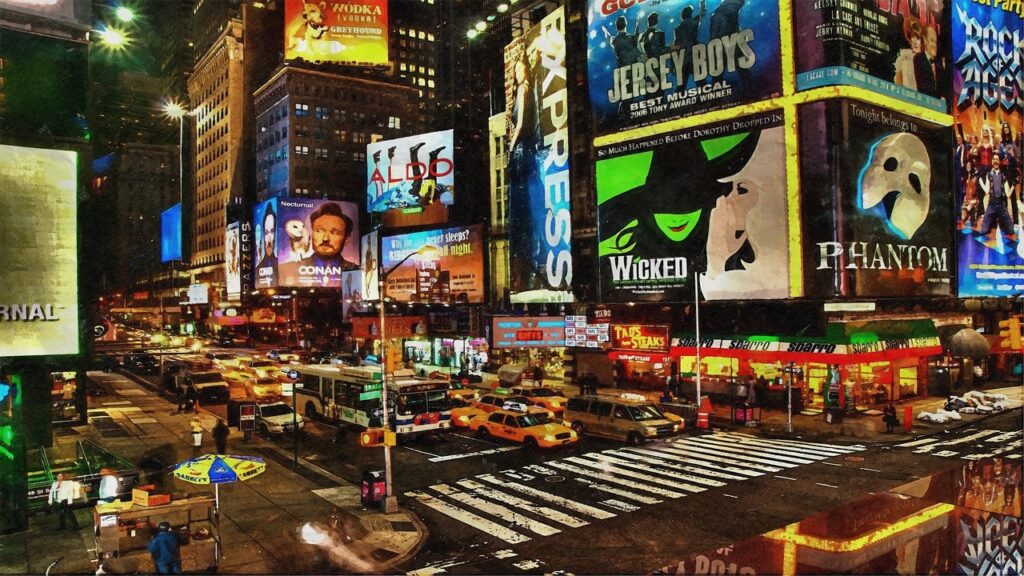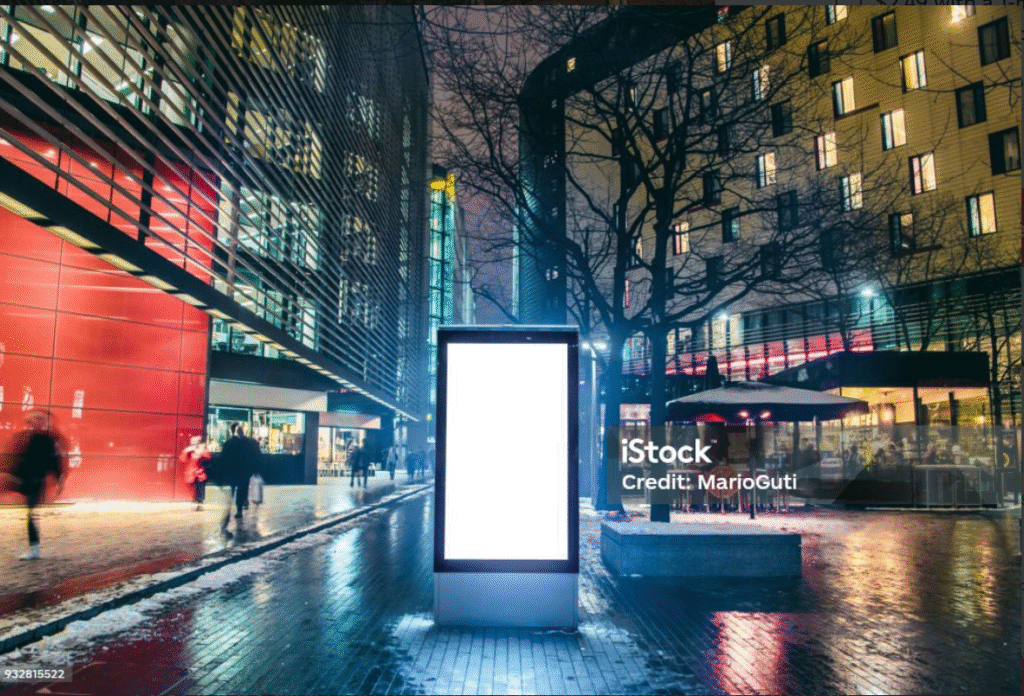
Outdoor advertisements have always been a cornerstone of marketing. In Nigeria and across the globe, they continue to play a critical role in helping brands capture attention, build credibility, and connect with diverse audiences. Despite the rise of digital marketing, outdoor advertising—commonly referred to as Out-of-Home (OOH) advertising—remains one of the most effective ways to achieve mass visibility and long-term brand recall. From traditional billboards to digital screens, transit ads, and branded installations, outdoor advertising has evolved into a sophisticated mix of creativity, strategy, and technology.
For businesses aiming to stand out in highly competitive markets like Lagos, Abuja, and Port Harcourt, mastering outdoor advertisements is no longer optional. It is a necessity. Below are essential insights and strategies that every business, brand manager, and marketing agency should consider when investing in outdoor ads.
1. The Enduring Power of Outdoor Advertising

Unlike digital ads that can be skipped, scrolled past, or blocked, outdoor advertisements are unavoidable. Whether it’s a large billboard dominating a busy Lagos intersection, or a branded bus wrapping across the city, outdoor media creates constant visibility. Nigerians, in particular, spend significant time commuting, which means outdoor campaigns are not just seen but remembered.
Outdoor ads also carry a sense of credibility. A brand that invests in physical advertising communicates seriousness, authority, and staying power. For emerging brands, outdoor media is often the bridge to earning consumer trust.
2. Choosing the Right Location
In outdoor advertising, location is everything. The same design on two different billboards can yield drastically different results depending on placement. High-traffic areas such as Third Mainland Bridge in Lagos, airport routes in Abuja, and busy marketplaces in Port Harcourt are prime spots because they guarantee repeated impressions.
Marketers must also think beyond traffic. For example, a luxury brand may prefer placements near affluent neighborhoods, while a quick-service restaurant may benefit from visibility along busy highways. Strategic alignment between billboard placement and target audience is crucial for maximizing ROI.
3. The Science of Design and Messaging
A successful outdoor advertisement doesn’t just look good—it communicates quickly and memorably. Since most people only glance at billboards for a few seconds, the design must be simple, bold, and impactful.
Key design principles include:
- Brevity: Keep text under seven words if possible.
- Contrast: High contrast colors ensure readability even from a distance.
- Legibility: Large, clean fonts are essential.
- Visual storytelling: Strong images or icons often communicate better than text.
In Nigeria’s diverse, multilingual environment, using clear and simple language is vital. Adding cultural cues, humor, or local expressions can also make an ad more relatable and memorable.
4. Integrating Outdoor with Digital Marketing
The modern consumer doesn’t live in a purely physical or digital space—they navigate both simultaneously. Outdoor advertising becomes far more effective when integrated with digital strategies.
For example:
- QR codes on billboards can lead to mobile landing pages.
- Hashtags can encourage social media interaction.
- Augmented Reality (AR) features can turn static billboards into interactive experiences.
This kind of integration makes outdoor ads measurable. By tracking QR scans or hashtag mentions, marketers can connect offline impressions to online conversions.
5. Regulatory & Cost Considerations in Nigeria
Advertising in Nigeria comes with its own challenges. Outdoor advertising is heavily regulated in major cities, with bodies such as the Lagos State Signage and Advertisement Agency (LASAA) ensuring compliance. Businesses must account for permits, fees, and legal guidelines before placing any billboard.
Costs also vary widely. Prime locations in Lagos can be significantly more expensive than smaller towns. Therefore, businesses must balance ambition with budget. Working with a reliable 360 marketing agency helps navigate these challenges and secure the best placements.
6. Measuring Outdoor Advertising Effectiveness
One of the common criticisms of outdoor ads is that they are difficult to measure. However, with today’s tools, this is no longer the case. Advertisers can use:
- Traffic counts to estimate impressions.
- Digital integration data (e.g., QR code scans, hashtag mentions) for precise tracking.
When combined with sales data or website analytics, businesses can get a clearer picture of how outdoor campaigns influence consumer behavior.
7. Trends Shaping Outdoor Advertising in Nigeria
Outdoor advertising is evolving rapidly. Some of the latest trends include:
- Digital Out-of-Home (DOOH): LED screens and digital billboards allow for dynamic content updates and real-time targeting.
- Programmatic OOH: Just like online ads, programmatic platforms are emerging for outdoor campaigns, allowing data-driven placements.
- Sustainability: Eco-friendly materials and energy-efficient displays are gaining traction.
- Experiential Advertising: Interactive installations and branded pop-ups are turning outdoor advertising into immersive experiences.
For Nigerian brands, staying ahead of these trends ensures relevance in an increasingly innovative landscape.
8. Outdoor Advertising as a Strategic Growth Tool
When done correctly, outdoor advertising is more than just a visibility tool—it’s a growth engine. By reaching millions of people consistently, billboards and outdoor ads reinforce brand recognition, drive consumer trust, and influence purchasing decisions.
For example, a telecom company may combine outdoor ads with digital campaigns during a product launch. This dual approach guarantees mass awareness (from the billboard) and direct engagement (from digital platforms), creating a powerful synergy that fuels growth.
9. Working with the Right Agency
Outdoor advertising requires expertise, industry connections, and creative strategy. This is where 360 marketing and advertising agencies in Nigeria come in. From negotiating prime billboard spots to designing compelling visuals and integrating campaigns with digital platforms, agencies act as partners in ensuring every Naira spent delivers measurable results.
Choosing the right agency means businesses don’t just buy ad space—they buy strategy, execution, and impact.
Conclusion
Mastering outdoor advertisements in Nigeria requires a blend of creativity, strategic placement, and integration with modern digital tools. From understanding the unique commuting culture in Nigerian cities to navigating regulatory frameworks, businesses must approach outdoor advertising with both art and science.
When executed strategically, outdoor ads are not just roadside distractions they are powerful tools for visibility, trust, and long-term growth. By partnering with experienced agencies and staying ahead of industry trends, brands can transform outdoor advertising into a driver of meaningful engagement and competitive advantage.